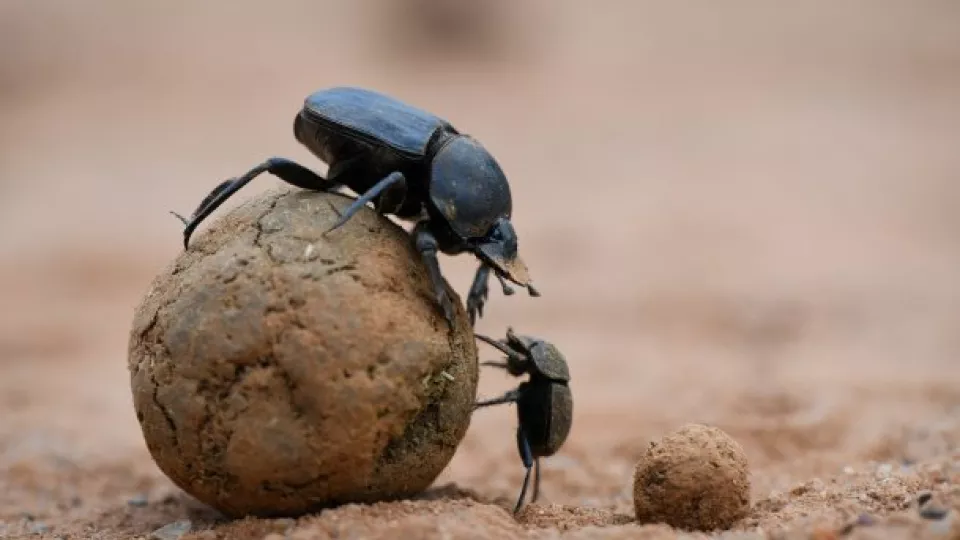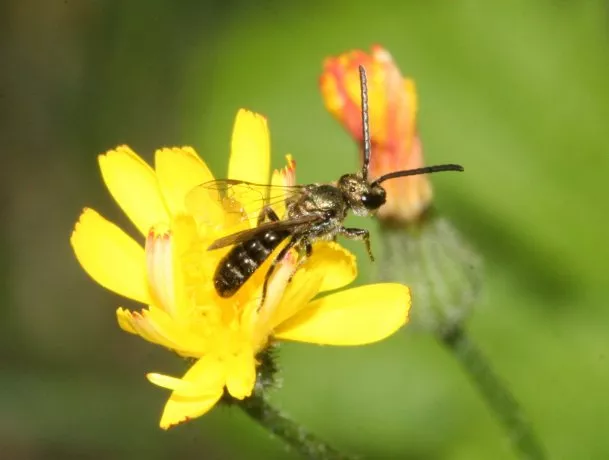Lund University professor Marie Dacke will examine and map the eyes, nervous system and brain of dung beetles. Among other things, she and her research team will measure the dung beetles’ brain activity in real time as the insects navigate across the South African savanna. The aim is to understand the optics and neurobiology behind the compass that enables dung beetles to stay on track and roll their dung balls on a straight course despite a total lack of landmarks.
It is due to the biological compass that, for example, desert ants don’t get lost, swallows locate their breeding sites and turtles find their way back to the island where they were born. Dung beetles can find their way using the sun and moon, but their compass is also sufficiently light-sensitive to enable them to extract information from the faint stars of the Milky Way on a dark night.
“The dung beetle is unique in the animal world. The aim of the project is to understand how a brain that is smaller than a grain of rice can process information from the night sky, and utilise that knowledge to create a complete model to describe how a biological compass works”, says Marie Dacke.
In her new project, she is looking for an answer to the question of how a nervous system integrates manifold sensory impressions in order to make a relevant decision. The answer may be of importance in neurobiology as well as perception and cognitive research. The electronics industry may also be able to utilise the research results in efforts to develop smaller and more light-sensitive sensors. Moreover, the project might provide inspiration for new solutions within artificial intelligence (AI) both in industry and our homes.
Lund University professor Yann Clough is responsible for the second project now receiving the go-ahead from the European Research Council. This project focusses on the concerning decline in pollinating insects. All signs indicate that populations of wild insects, including wild bees and butterflies, have decreased significantly in recent decades. However, the question is how much this situation affects an individual ecosystem.
“I will examine this in my research project, using complementary approaches that include experiments in which I exclude pollinating insects from parts of grasslands for several years”, says Yann Clough.
The problem of declines in pollinating insects has been known for some years while and has received considerable attention, but knowledge about the consequences for ecosystems is still limited . Preliminary results indicate that natural pastures in areas dominated by intensive farming are adversely affected; fewer pollinators in the area results in fewer flowering plants in the pastures. Such a change can threaten biological diversity, especially if valuable natural pastures are affected. The situation could also have an impact on the productivity of grasslands – how much forage grasslands provide – and even their ability to store carbon and thereby counteract climate change.
Yann Clough’s project will focus on identifying the circumstances in which a lack of pollination can arise and its consequences, and how to combat the problem effectively through targeted measures to support pollinating insects. This could, for example, entail adapted land use around particularly sensitive areas. The project will include field studies in Skåne.
“Showing the ecological significance of insects, both for the environment and for people, is extremely important”, says Yann Clough.
Funding for the two research projects is from prestigious ERC Consolidator Grants, awarded following a competitive application process involving researchers from all over the world.
For more information, please contact:
Marie Dacke, professor
Department of Biology, Lund University
+46 73 812 87 98
marie [dot] dacke [at] biol [dot] lu [dot] se
Yann Clough, professor
Centre for Environmental and Climate Research, Lund University
+46 46 222 68 31, +46 76 226 80 70
yann [dot] clough [at] cec [dot] lu [dot] se


